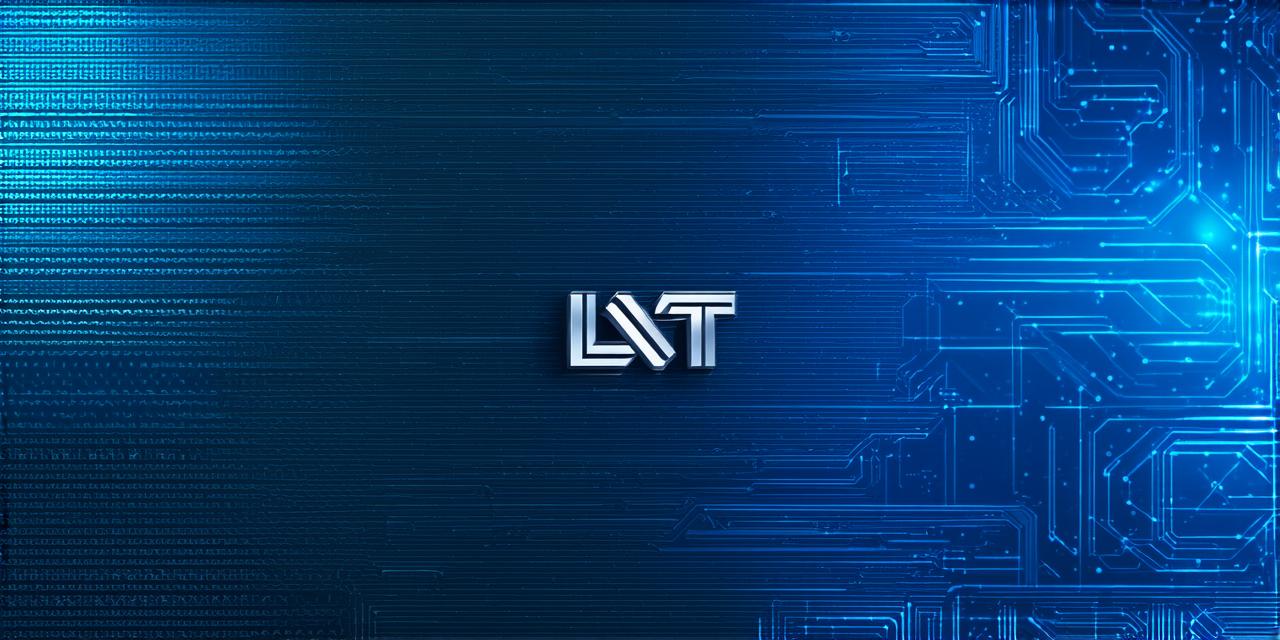What is Enterprise Blockchain?
Enterprise blockchain refers to the use of blockchain technology within a company or organization for various purposes, such as supply chain management, identity verification, and voting systems. Unlike public blockchains like Bitcoin, enterprise blockchains are private networks that can only be accessed by authorized users, ensuring the privacy and confidentiality of sensitive data.
Benefits of Enterprise Blockchain
1. Increased Security:
Enterprise blockchain uses cryptographic techniques to secure the data stored on it, making it nearly impossible for hackers to tamper with or steal information. This is particularly useful in industries that deal with sensitive data like financial services and healthcare.
2. Improved Transparency:
Blockchain technology allows for a transparent record of all transactions that take place on the network. This means that any changes made to the data are visible to everyone, making it easier to detect fraud and errors.
3. Faster Transactions:
Enterprise blockchain enables the execution of transactions in real-time, eliminating intermediaries and reducing the time required for a transaction to complete. This is particularly useful in industries that require fast processing times like banking and logistics.
4. Increased Efficiency:
By automating various processes like record-keeping and identity verification, enterprise blockchain can significantly reduce the administrative burden on businesses. This allows employees to focus on more strategic tasks and increases efficiency across the organization.
5. Reduced Costs:
Enterprise blockchain eliminates the need for intermediaries, resulting in reduced transaction fees and faster processing times. This translates into significant cost savings for businesses that rely on traditional methods of data storage and transfer.
Limitations of Enterprise Blockchain
1. Regulatory Challenges:
The adoption of enterprise blockchain is still in its early stages, and there are many legal and regulatory challenges that need to be addressed before it can be widely adopted. For example, there are concerns about data privacy laws and regulations, which may limit the use of blockchain technology in certain industries.
2. Scalability Issues:
Currently, enterprise blockchains are still in the early stages of development, and there are scalability issues that need to be addressed before they can be used in large-scale applications. This is particularly true in industries that require high levels of transaction volume, like logistics and banking.
3. Technical Complexity:
Enterprise blockchain technology is complex, and it requires specialized skills to implement and maintain. This can make it difficult for businesses that lack the necessary expertise to adopt blockchain technology.

4. Integration with Existing Systems:
Integrating enterprise blockchain with existing systems can be challenging, particularly if those systems are legacy systems or have limited integration capabilities. This may require significant investment in infrastructure and software development.
5. Limited Adoption:
Despite the potential benefits of enterprise blockchain, adoption rates are still low, particularly in industries that require significant regulatory approval. This may limit its widespread use in certain sectors.
Real-Life Examples of Enterprise Blockchain
1. Walmart:
Walmart has partnered with IBM to implement an enterprise blockchain system for supply chain management. The system enables the tracking of products from the point of origin to the store shelf, allowing Walmart to quickly identify and remove contaminated products.
2. Maersk:
Maersk has developed an enterprise blockchain platform called TradeLens that enables the tracking of goods in transit across multiple parties in the logistics supply chain. The platform allows for real-time visibility of shipments, reducing the risk of fraud and errors.
3. De Beers:
De Beers, a diamond company, has implemented an enterprise blockchain system called Tracr that enables the tracking of diamonds from mine to retail store. The system uses unique digital identifiers to track the movement of diamonds and ensure their authenticity.
4. Pfizer:
Pfizer has partnered with IBM to implement an enterprise blockchain system for clinical trial data management. The system ensures the integrity and transparency of clinical trial data, reducing the risk of fraud and improving patient safety.
5. Westinghouse Electric:
Westinghouse Electric has implemented an enterprise blockchain platform called Power Ledger that enables peer-to-peer energy trading between consumers and utilities. The platform allows for more efficient energy distribution and reduces costs for both consumers and utilities.
Conclusion
Enterprise blockchain is a promising technology that offers many potential benefits to businesses across various industries. However, it also presents several challenges that need to be addressed before it can be widely adopted. By understanding the potential benefits and limitations of enterprise blockchain, businesses can make informed decisions about whether to invest in this emerging technology. Ultimately, the success of enterprise blockchain will depend on its ability to overcome regulatory and technical hurdles and become a seamless and integrated part of existing business processes.
